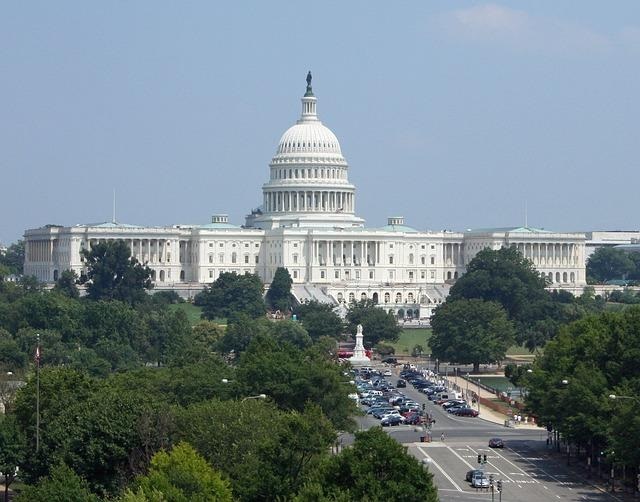In the complicated landscape of the legal framework, exploring through wrong decisions can dismay. However, different legal methodologies exist to actually challenge such outcomes. From administrative appeals to federal court mediations, people and elements have choices to look for justice. We should dig into these techniques, investigating their subtleties and possible outcomes.
Administrative Appeals:
Administrative appeals act as an underlying response for challenging wrong decisions made by administrative offices or boards. These appeals regularly include presenting a conventional solicitation for reexamination of the decision to the very organization or board that gave it. The process might require introducing new proof or featuring procedural errors that might have impacted the decision.
One common administrative appeal strategy includes connecting with legal guidance to draft an enticing appeal letter illustrating the reason for challenging the decision. This letter frequently underlines legal errors, confusion of proof, or infringement of procedural fair treatment. Federal appeal lawyers specializing in administrative law can give priceless expertise in exploring the complexities of this process.
Moreover, administrative appeals might prompt casual settlement talks or intercession meetings pointed toward settling questions outside conventional prosecution channels. These elective question goal techniques can save time and assets while possibly bringing about favorable outcomes for all gatherings included.
Judicial Review:
When administrative appeals neglect to yield good results, people or substances might seek after judicial review through the court framework. This includes filing a lawsuit against the office or board being referred to, seeking to upset the wrongful decision. Judicial review takes into consideration an intensive assessment of the legal and factual basis of the decision by a fair adjudicator.
The appeal lawyers play a vital role in advocating for their clients during judicial review procedures. They carefully examine the administrative record, identify legal errors, and craft compelling legal arguments to convince the court to turn around the decision. Their expertise in appellate promotion guarantees that clients get hearty representation at each phase of the prosecution process.
Moreover, judicial review bears the cost of prosecutors the chance to put forth their viewpoint before a nonpartisan referee, guaranteeing decency and fair treatment. Courts might upset wrongful decisions if they track down proof of erratic or eccentric activity by the administrative organization, meaningful legal errors, or infringement of established rights.
Civil Appeals:
In cases where a wrongful decision begins from a trial court, civil appeals give a pathway to challenge the ruling under the steady gaze of a higher court. Civil appeals include filing a notification of appeal with the fitting appellate court, where a board of judges reviews the trial court’s decision for legal errors or procedural inconsistencies.
The appeal lawyers specializing in civil suit have the expertise to really explore the appellate process. They fastidiously review trial records, identify legal issues, and craft convincing appellate briefs to introduce under the steady gaze of the appellate court. Their experience in oral support permits them to contend their client’s case during appellate hearings actually.
Moreover, civil appeals offer defendants the potential chance to get a new viewpoint on their case from fair appellate judges. These judges investigate the trial court’s decision, guaranteeing that justice is served and legal errors are adjusted. Fruitful civil appeals can bring about the inversion of wrongful decisions, giving gatherings another opportunity to accomplish a favorable outcome.
Alternative Dispute Resolution Methods:
In addition to administrative appeals and judicial review, alternative dispute resolution methods offer one more road for challenging wrong decisions outside customary case channels. Intercession and intervention are two commonly used types of alternative dispute resolution.
In intercession, an impartial third party facilitates conversations between the gatherings in question, assisting them with arriving at a commonly OK resolution. Mediation, then again, includes introducing the dispute to a referee or board of judges who render a limiting decision.
These methods give parties more prominent command over the outcome and can frequently bring about swifter resolutions compared to extensive court procedures. The appeal lawyers skilled in alternative dispute resolution strategies can direct clients through these processes, guaranteeing their inclinations are addressed actually while investigating roads for neighborly resolution.
Final Word:
Challenging wrong decisions requires a strategic approach and expert legal representation. From administrative appeals to judicial review and civil appeals, people and substances have a scope of legal systems available to them. Federal appeal lawyers play a urgent role in advocating for their clients’ rights and interests all through the appellate process.
At Brownstone Appeal Lawyers, we work in giving far reaching appellate representation to clients cross country. Our team of experienced federal appeal lawyers is committed to conveying remarkable results and getting justice for our clients.
Whether you’re confronting an unfriendly administrative decision or seeking to appeal a trial court ruling, we’re here to assist you with exploring the intricacies of the appellate process. Contact us today to learn more about how we can assist you in challenging wrongful decisions and accomplishing a favorable outcome.

